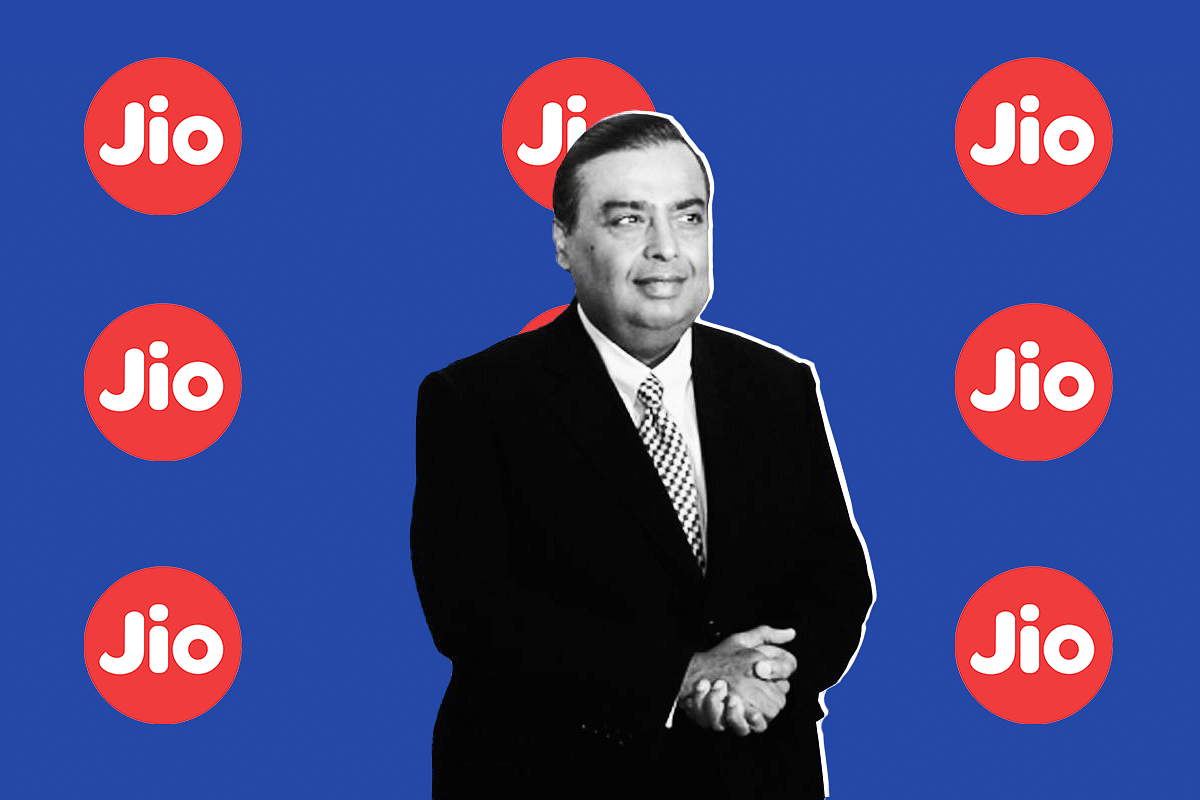
5G Rollout, FMCG Foray And A Succession Plan: Here Are The Highlights From Reliance Industries' 45th AGM
Like the previous few AGMs, this one too saw some strategic announcements being made by Mukesh Ambani.
The 45th annual general meeting (AGM) of Reliance Industries was held today.
In his address, Reliance Industries Chairman Mukesh Ambani announced a Rs 2.75 lakh crore investment plan to expand and diversify his USD 221 billion-empire by:
rolling out 5G services from October through Reliance Jio;
adding capacity in the core oil and chemical business;
and foray into the FMCG sector.
Ambani, 65, also identified the businesses his three children will lead in clear signs of succession planning:
Akash Ambani will lead Reliance Jio.
Mukesh Ambani's daughter, Isha, will head Reliance Retail.
While Anant Ambani has joined the new energy business of reliance.
He, however, insisted he isn't retiring yet and will 'continue to provide hands-on leadership as before'.
Plans for Jio
Reliance Jio Infocomm Ltd will deploy a 'standalone 5G' version which is not dependent on the previous 4G network, to deliver ultra-fast internet connectivity.
The project will begin with four metro cities by Diwali and cover the entire country by December 2023, said Mukesh Ambani.
The firm is investing Rs 2 lakh crore for the 5G rollout.
Jio 5G service 'will connect everyone, every place and everything with the highest quality and most affordable data,' said Ambani. 'It will be the world's largest and most advanced 5G network.'
He, however, did not give details on the pricing.
Ambani also said that Reliance will partner with Qualcomm Inc to provide cloud-based 5G network solutions for businesses.
Notably, Reliance Jio - India's largest telecom operator - was the biggest buyer in this year's spectrum auctions to develop a 5G network.
FMCG drive
At the same AGM, Isha Ambani, who has been identified as the leader of the retail business, announced the company's foray into the fast-moving consumer goods (FMCG) industry.
Reliance Retail, India's largest retailer with 15,196 stores selling groceries to high-end fashion and lifestyle items, will take on a rival group headed by Gautam Adani, who has in recent months moved ahead of Mukesh Ambani to become the nation's richest man.
Adani Wilmar, which manufactures edible oil to packaged food items, became India's largest FMCG company earlier this year, ahead of HUL.
Isha Ambani said the firm is looking to 'develop and deliver high quality, affordable products, which solve every Indian's daily needs.'
In the first phase, Reliance will be working with some of the strong heritage brands in the FMCG domain, including staples, food and beverages, home and personal care and beauty categories.
It will help contemporise the brands and scale their business across India, and globally.
Also, it will forge strategic partnerships through tie-ups and acquisitions to reduce time to market, to build manufacturing capabilities and to expand distribution penetration.
Reliance will also look at transforming its private labels to consumer brands, with improved quality, packaging, and communication through a focused approach.
Mukesh Ambani also announced a tie-up with Meta Platform Inc to integrate his group's online shopping platform JioMart on WhatsApp, to allow users to browse and purchase groceries and other household products without leaving the popular messaging app.
Energy business
In the core oil and petrochemical business:
Reliance will invest Rs 75,000 crore in the next five years in setting up a PTA plant;
expanding polyester capacity;
tripling the capacity of vinyl chain;
and a chemical unit in the UAE.
Power electronics
Reliance will also add a fifth Giga Factory of power electronics in addition to the four Giga Factories for solar panels, energy storage, electrolysers and fuel cells announced last year.
Announcing the new Giga Factory, Ambani said: 'One of the key components linking the entire value chain of green energy is affordable and reliable power electronics.'
Power electronics are the components and equipment necessary to convert the electrical current from one form into another (from DC to AC or vice versa) in usable form, to meet specific customer application requirements. This they achieve by using static power semiconductors.
These typically include inverters, converters and rectifiers of different capacities, sizes and shapes.
Vision for 2027 and beyond
In his address, Mukesh Ambani praised Prime Minister Modi's plan for India's 'Amrit Kaal' (next 25 years):
Ambani said that it would prove to be transformational for the country and the next generation would alone achieve what the generations since Independence have achieved till now.
He placed Reliance at the centre of those plans by stating that 'Aadhaar, Jan Dhan, RuPay, UPI, Aayushman Bharat and StartUp India were possible due to the robust Jio network'.
Ambani, who built Reliance into India's largest company by market value, has been diversifying the powerhouse conglomerate beyond its fossil fuel-led businesses and towards technology and renewable energy.
He said the 'robust architecture' being created will ensure that Reliance 'remains a united, well-integrated and secure institution' that 'more than doubles its value by the end of its Golden Decade in 2027.'
With inputs from PTI.